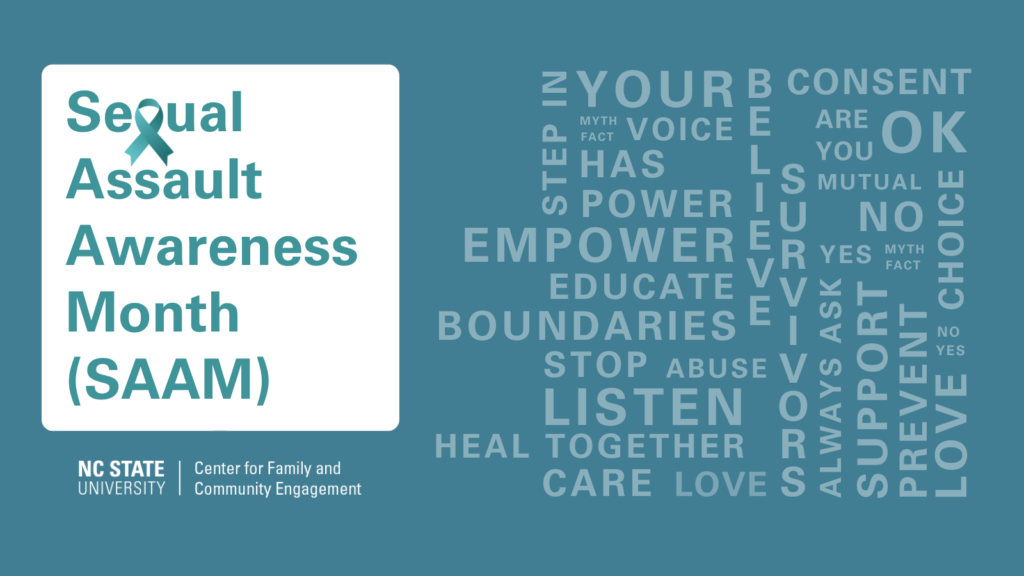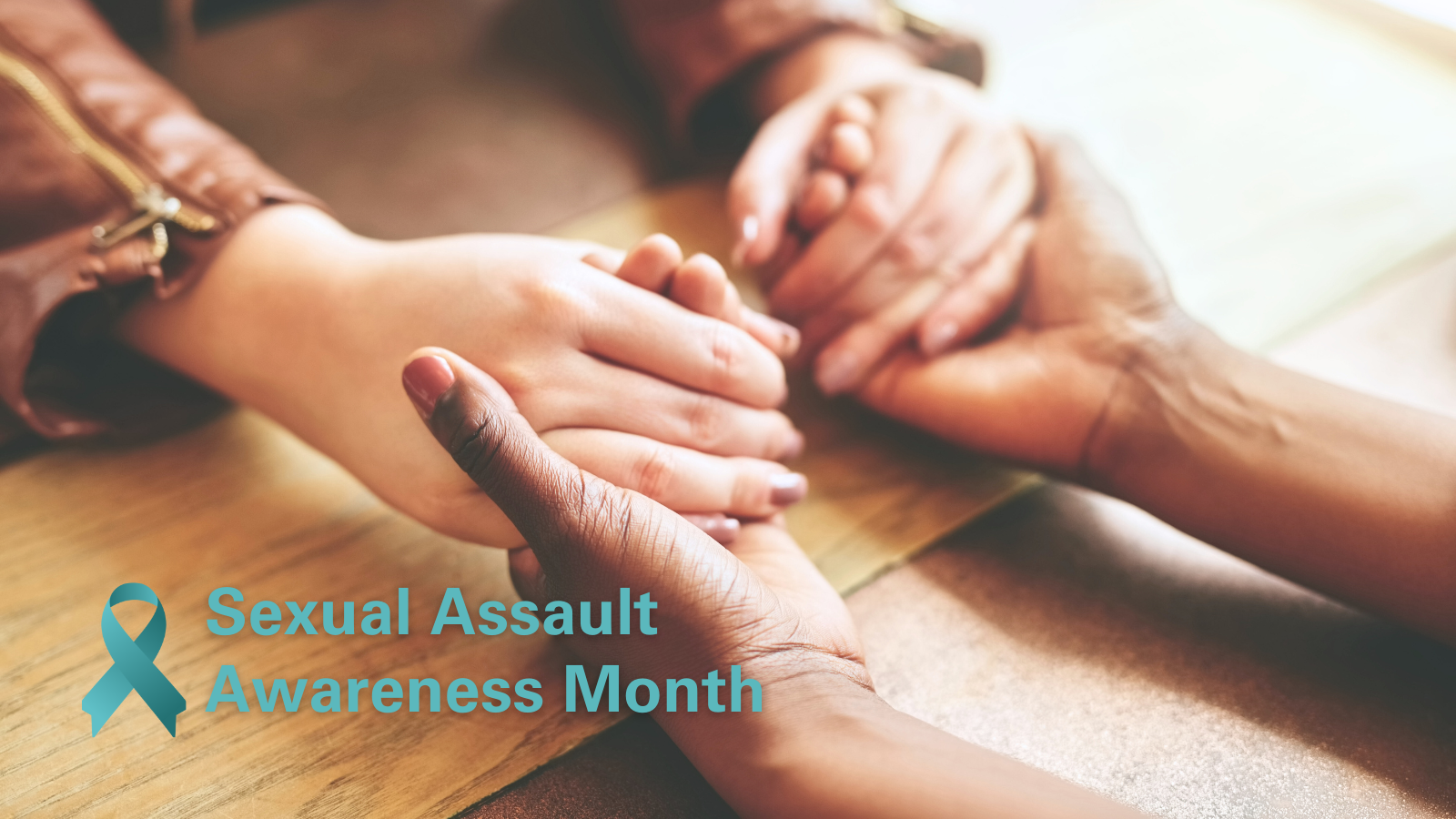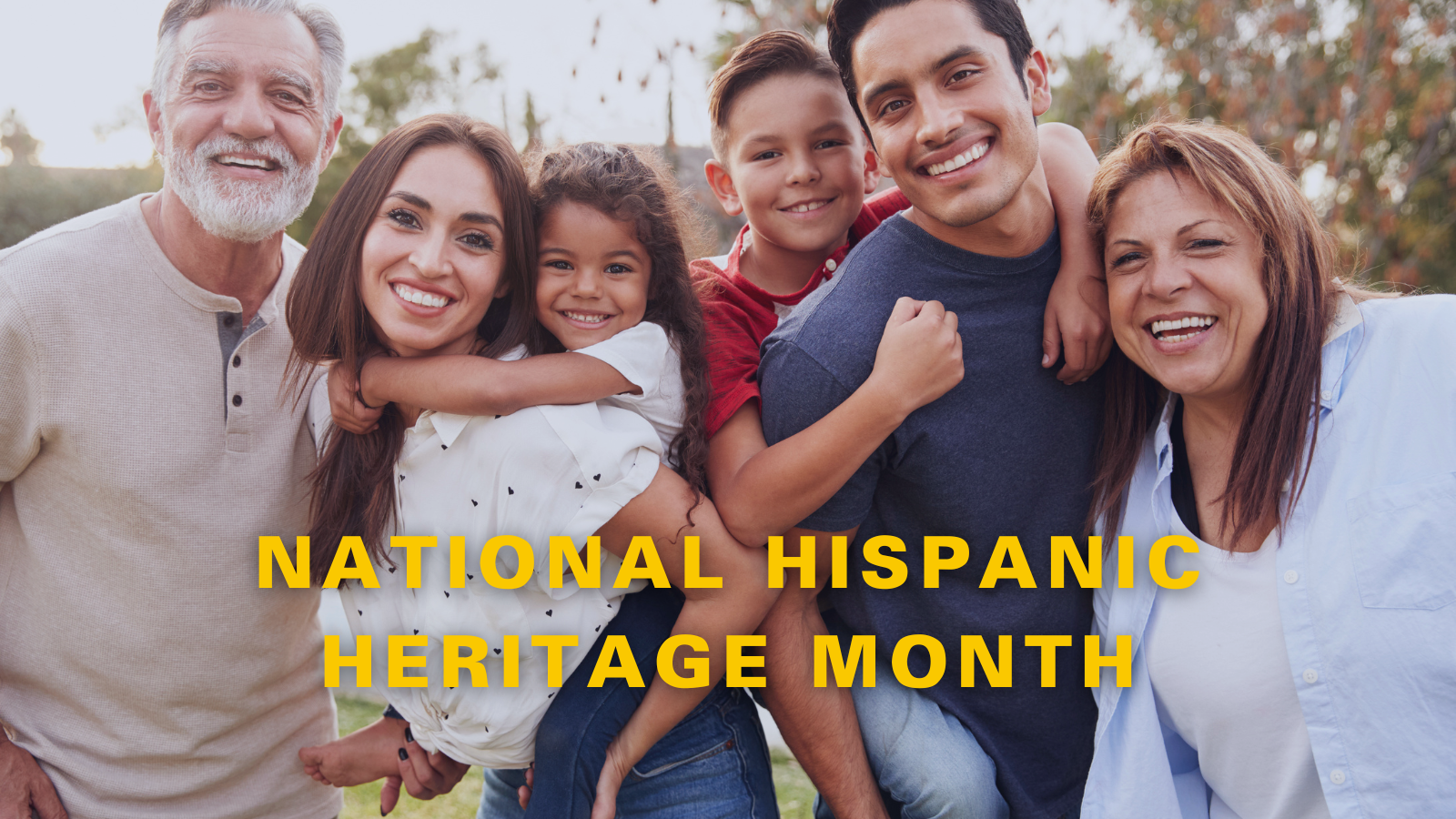Sexual Assault Awareness Month (SAAM) is a time to raise awareness, challenge myths, and promote a culture of respect and consent. Understanding sexual violence and taking action can create safer communities for everyone also empower us to support survivors and foster an environment of respect and accountability in all areas of life, from personal relationships to the workplace and beyond.
Consent: What It Means in Relationships and Everyday Interactions
Consent is the cornerstone of healthy relationships, and understanding what it truly means is vital. DomesticShelters.org covers how consent extends beyond just intimate interactions—it applies to all forms of relationships, whether romantic, platonic, or professional. By fostering open discussions about consent, we can create safer, more respectful communities. Key elements of consent include:
- Consent is Clear & Enthusiastic: A “yes” should be freely given and not coerced. It must be enthusiastic and affirming—if it’s not an enthusiastic “yes,” it’s a “no.”
- Consent is Ongoing: Consent isn’t a one-time agreement—it must be checked continuously. What someone agrees to today may be different tomorrow.
- Consent is Informed: A person must fully understand what’s happening before giving consent. If someone is impaired (due to alcohol, drugs, or other factors), they cannot legally or ethically give consent.
- Consent is Reversible: Anyone can change their mind at any time, and their decision should be respected.
- Consent Applies Beyond Intimacy: Consent is about respecting personal boundaries in all situations—from physical touch to sharing personal information.

Myth vs. Fact: Breaking the Silence on Sexual Violence
It’s crucial to debunk the myths that surround sexual assault in order to better support survivors and educate others. According to Resilience, the examples provided below are common misconceptions about sexual assault.
- Myth: Sexual assault is usually committed by strangers.
- Fact: Most sexual assaults are committed by someone the survivor knows—an acquaintance, partner, or family member.
- Myth: Survivors should immediately report the incident.
- Fact: Reporting is a deeply personal decision, and survivors may need time to process, seek support, or heal before making this choice.
- Myth: If a survivor didn’t physically resist, it wasn’t really assault.
- Fact: Fear, shock, and trauma can inhibit a survivor’s ability to fight back. Consent is never assumed based on a lack of resistance.
Spotting the Signs: How to Identify Sexual Harassment
Sexual harassment can manifest in many ways, and it’s important to recognize the key indicators that someone may be experiencing it. These signs can vary depending on the situation but some common indicators are outlined below.
Common Indicators of Sexual Harassment
- Unwanted Comments or Jokes: Making sexual jokes, comments, or innuendos that make someone feel uncomfortable, embarrassed, or threatened. This could involve comments on someone’s appearance, body, or sexual activities.
- Inappropriate Physical Contact: Unwanted touching, hugging, or brushing up against someone, especially when it makes the person feel uncomfortable or violated.
- Sexual Advances or Requests: Direct or implied requests for sexual favors or advances that are unwelcome. This could include pressure to date or engage in intimate activities.
- Hostile Environment: Creating a workplace or social environment that feels intimidating, uncomfortable, or hostile due to sexualized behavior. This could involve using sexual language or gestures, displaying sexually explicit material, or creating an environment where harassment is tolerated or ignored.
- Exclusion or Retaliation: If someone expresses discomfort or tries to reject sexual advances and is then excluded, demoted, or retaliated against in any way, it can be a sign of harassment.
- Frequent Unwanted Attention: Someone repeatedly contacting or pursuing another person despite clear indications that the attention is unwanted, whether through texts, calls, emails, or in person.
- Body Language and Behavior: Someone may exhibit signs of discomfort, distress, or anxiety when interacting with a particular person. This could include avoiding eye contact, physical withdrawal, or defensive body language.
- Power Imbalance or Abuse of Authority: If someone in a position of power uses their role to coerce or intimidate another person into sexual actions or advances, it can be a key indicator of sexual harassment.
- Changes in Mood or Behavior: Victims of sexual harassment may display changes in their behavior, such as withdrawing, appearing anxious, stressed, or avoiding certain situations or people.
If any of these indicators are observed, it’s important to take them seriously and provide support to the person affected while ensuring they have access to resources and help (Centers for Disease Control and Prevention, Intimate Partner Violence, 2024; Teen Dating Violence, 2025).
Bystander Intervention: How to Safely Intervene and Support Someone in Need
Bystander intervention is a key strategy in preventing sexual violence and supporting those at risk. It empowers individuals to recognize harmful situations and take safe, appropriate action. A bystander is anyone who witnesses a situation that could lead to harm, while an active bystander chooses to step in rather than ignore it.
Why It Matters? Intervention can prevent harm from escalating and shows support for those affected. It fosters accountability and sets a standard for respectful behavior. Being an active bystander doesn’t mean risking your safety—it’s about taking meaningful action to create a safer, more supportive community.
The key is intervening safely and effectively without putting yourself or others at risk.
Five Strategies for Bystander Intervention
- Direct Action: If it is safe to do so, address the situation head-on by speaking to the individuals involved. If someone is making inappropriate comments, firmly say, “That’s not okay.” Example: “Hey, are you okay? Do you need help?”
- Create a Distraction: Interrupt the situation to shift attention away and de-escalate potential harm. If someone is being harassed at a social event, say, “Hey, I’ve been looking for you! Come with me.” Example: Spill a drink, start a random conversation, or ask for directions.
- Delegate to Someone Else: If you don’t feel safe stepping in, find someone in a position of authority who can help. Ask a friend or another bystander for help: “Hey, do you see what’s happening? Let’s do something.” Example: Alert a bartender, security guard, manager, or teacher.
- Delay and Follow Up: If immediate intervention isn’t possible, check in with the person afterward to offer support.Offer resources, such as a hotline number or a trusted contact. Example: “I saw what happened earlier—are you okay? Do you need help?”
- Document the Incident: If you cannot safely intervene, consider recording or noting details of the incident. If legal action is taken, documentation can serve as important evidence. Example: Take a video (only if safe and with consent) or remember key details to report later (National Sexual Violence Research Center, 2018).
How to Help: Supporting Survivors with Compassion and Respect
Supporting someone who has experienced sexual assault or harassment is one of the most important things you can do. It can be difficult to know what to say or do, but your presence, care, and willingness to listen can make a significant difference in their healing journey. Provided by the National Sexual Violence Center (NSVRC) and the Rape, Abuse & Incest National Network (RAINN), here are some key ways you can offer support while respecting their autonomy and ensuring their emotional well-being.
Ways to Offer Support
- Listen Without Judgment: The most important thing you can do is listen. Offer a safe, non-judgmental space where your friend can share their feelings without fear of being criticized or blamed. Let them speak at their own pace, without interrupting or pushing them to share more than they’re comfortable with. Use active listening skills like nodding, maintaining eye contact, and saying things like, “I believe you” or “I’m so sorry this happened to you.” Avoid asking intrusive questions or pressuring them to recount details unless they are ready.
- Believe Them: Believe the story. Survivors often face doubt and disbelief from others, so showing that you believe them can be incredibly validating. Assure them that what happened is not their fault and that they are not to blame in any way. Say things like: “What happened to you is not your fault,” or “You didn’t deserve this.” Avoid minimizing their experience, even unintentionally. Phrases like “At least you weren’t physically hurt” or “It could have been worse” should be avoided.
- Respect Their Autonomy and Choices: Understand that the survivor is the one who gets to decide what happens next. It’s essential to support their decisions, whether they choose to report the assault or not, seek counseling, or take time to heal privately. Avoid pressuring them into actions they’re not ready for or offering unsolicited advice. Support their decisions even if they don’t align with what you might have chosen. Encourage them to explore options, but give them space to make their own choices.
- Offer Practical Help: Survivors may need support beyond emotional encouragement. Offering to help with everyday tasks or attending appointments with them can ease the burden of practical responsibilities while they focus on healing. Offer to drive them to therapy sessions, help with meals, or assist with any other responsibilities that may feel overwhelming.Help them access resources such as hotlines, support groups, or counseling services if they’re interested.
- Validate Their Emotions: Survivors often experience a wide range of emotions, including fear, shame, anger, sadness, confusion, and guilt. Let them know that these feelings are normal, and it’s okay to feel however they’re feeling. Avoid telling them how they should feel, and instead allow them to express themselves freely. Acknowledge their feelings with phrases like, “I can’t imagine how hard this must be for you” or “It’s okay to feel upset, and I’m here for you.” Remind them that healing is not linear, and it’s okay to have good and bad days.
- Encourage Professional Support: Healing from trauma can be an ongoing process. Encourage your friend to seek professional help from a therapist or counselor, especially if they seem ready. Offer to assist them in finding resources, whether it’s a therapist specializing in trauma or a local support group. Let them know therapy is a healthy and supportive way to process their feelings, but only if and when they’re ready. Be patient with them if they are hesitant about seeking help, and reassure them that it’s okay to take the time they need.
- Take Care of Yourself, Too: Supporting a friend through trauma can take an emotional toll. Make sure you’re also looking after your own mental and emotional well-being. Seeking support from a counselor or a support group for friends and family of survivors can help you process your own feelings and stay strong for your friend. Be mindful of your own emotions and practice self-care. Reach out to someone you trust or seek professional support if you need help processing your feelings about your friend’s experience.
- Keep Communication Open: Let them know that you’re there for them, no matter what. Survivors might distance themselves as they process their trauma, but consistent check-ins from a compassionate friend can show them they are not alone. Send a simple message like, “I’m thinking of you and I’m here if you want to talk.” Let them know that your support doesn’t have a timeline. Even if they need space, your willingness to stay connected can be a great source of comfort.
Supporting someone who has experienced sexual assault or harassment requires empathy, patience, and respect. By offering a safe space for them to share their feelings, validating their emotions, and encouraging them to seek professional help, you are helping them on their journey toward healing.
Remember, it’s okay if you don’t have all the answers. Sometimes, simply being there for someone—without judgment or pressure—can be the most powerful form of support. Always encourage them to seek additional resources and remember to look after your own emotional well-being as well.
Get Involved
The first Tuesday of April is designated as the National Day of Action, a part of SAAM. On this day, individuals are encouraged to wear teal, the official color of sexual assault awareness, to show support for victims and promote prevention efforts.
There are several local events and workshops planned to promote awareness, provide support, and foster community discussions.
- NC State University’s SAAM Activities – The Women’s Center at NC State University is organizing a variety of events throughout April to honor the strength and resilience of activists, advocates, and survivors. These activities aim to create a supportive community and encourage political action for a safer campus environment. womenscenter.dasa.ncsu.edu
- HAVEN Training at UNC Chapel Hill – The Equal Opportunity and Compliance Office, in collaboration with Violence Prevention and Advocacy Services, is hosting HAVEN (Helping Advocates for Ending Violence Now) training sessions. These three-hour workshops equip participants with tools to support individuals affected by sexual assault, interpersonal violence, or stalking. The training emphasizes listening, compassionate response, and connecting survivors to appropriate resources. safe.unc.edu
- Ongoing Initiatives by the North Carolina Coalition Against Sexual Assault (NCCASA) – NCCASA is an inclusive, statewide alliance working to end sexual violence through education, advocacy, and legislation. They offer various resources and may host events throughout April to support SAAM. nccasa.org
- UNC Chapel Hill Tabling Event – On April 24, 2024, UNC Chapel Hill hosted a tabling event in The Pit to promote SAAM. While this event has passed, similar activities may be planned for April 2025. It’s advisable to check the university’s events calendar for the most current information. calendar.unc.edu

As April 2025 approaches, numerous events and workshops will raise awareness about sexual assault prevention and support. Stay updated through NC State, UNC Chapel Hill, NCCASA, and local rape crisis centers. For specific event details, check social media or contact hosts directly. Your participation helps foster a community committed to prevention and survivor support. Amplifying survivor voices is equally important. Their stories offer powerful insights into resilience, raise awareness, and inspire action. For survivors, they provide validation and hope.
- Categories:



